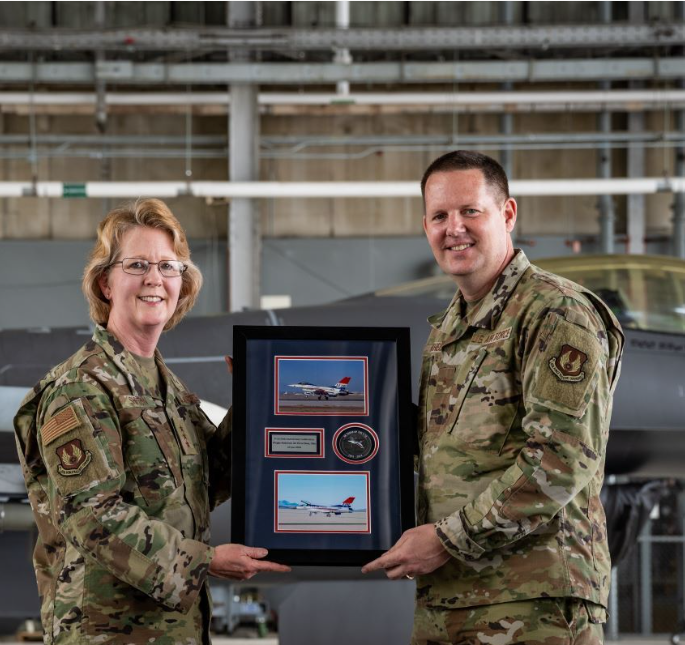CCA Autonomy Contracts Awarded to Five Vendors

DAYTON, Ohio–The U.S. Air Force in the last few months awarded classified contracts to five vendors–a mix of traditional defense companies and non-marquee ones–for the autonomy piece of the Collaborative Combat Aircraft (CCA), service leaders said here on July 29 in a forum with reporters during the Air Force Life Cycle Management Center’s (AFLCMC) annual Life Cycle Industry Days’ gathering of Air Force and industry leaders.
Col. Timothy Helfrich, the director of AFLCMC’s Agile Development Office (ADO) and the senior materiel leader for AFLCMC’s advanced aircraft division, said that officials were wary of disclosing the recent five awardees, as the proposed autonomy systems are the “guts” of CCA.
The ADO has about 350 employees here at Wright-Patterson AFB, of whom 100 work on CCA.
In April, the Air Force said that it had chosen privately-held drone makers, General Atomics and Anduril, to build air vehicles in the first round of CCA. The companies beat defense industry heavyweights Boeing, Lockheed Martin, and Northrop Grumman.
Air Force Brig. Gen. Jason Voorheis, the program executive officer for fighters and advanced aircraft, said on July 29 that the disclosure of the two air vehicle CCA awardees, in contrast to the non-disclosure of the five CCA autonomy awardees, came as the service wants to be transparent and balance such transparency with security concerns.
Voorheis said that the goal will be to carry forward as many competitors as possible before a CCA, Increment 1 production decision in 2026.
Air Force Gen. Kenneth Wilsbach, the head of Air Combat Command (ACC) at Joint Base Langley-Eustis, Va., said this month that he believes that the service will field CCA “pretty quick, and I think they’re gonna be quicker than some of the manned platforms that we’ve experienced in the last few decades.”
Voorheis said on July 29 that his office intends to get CCAs out to the field by the end of the decade.
On the CCA propulsion side, the AFLCMC propulsion office has not decided on a propulsion class yet and is examining a variety of low-end and high-end options, John Sneden, AFLCMC’s program executive officer for propulsion, said on July 29.
Earlier in July, , GE Aerospace and Kratos Defense & Security Solutions said that they are developing a 600 pound-1,250 pound thrust engine for CCA and other drones.
That is a relatively low-thrust class, as the F-16 fighter, for example, has a 30,000-pound thrust engine.
A version of this story originally appeared in affiliate publication Defense Daily.
The post CCA Autonomy Contracts Awarded to Five Vendors appeared first on Avionics International.
—————
Boost Internet Speed–
Free Business Hosting–
Free Email Account–
Dropcatch–
Free Secure Email–
Secure Email–
Cheap VOIP Calls–
Free Hosting–
Boost Inflight Wifi–
Premium Domains–
Free Domains





